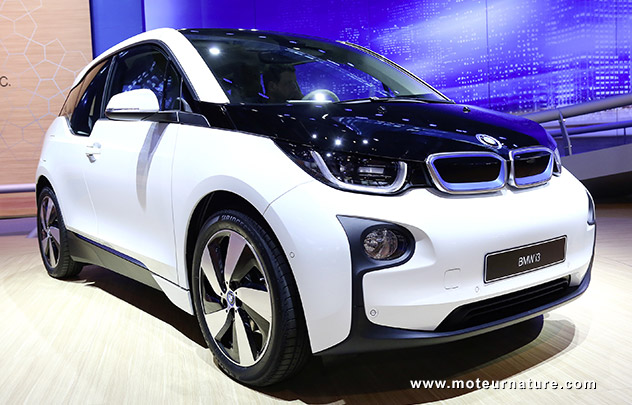
An Australian website, Motoring, is giving one unexpected news. BMW may launch an hydrogen fuel cell powered version of its i3 electric car. The car would be built with help from partner Toyota, which is just about to launch a fuel cell vehicle. That would come as a surprise to many onlookers, yet somehow it shouldn’t.
A few years ago, BMW built 100 hydrogen-powered versions of its top sedan, the 7-series with a V12 engine. Among the last made, a couple had a small fuel cell inside to power on-board accessories. With more than 30 years experience in converting ICE to run on hydrogen, BMW knows a lot about the subject. The know-how is not a problem, but there may be one with feasibility. There is the option of a small gas engine with a small tank as a range extending unit in the BMW i3, but is it possible to replace that with a fuel cell and a hydrogen tank, much beefier than a gas tank? In the same space, it’s unlikely. BMW uses a motorbike engine, a very compact unit, and the fuel tank contains less than three gallons. The chance though, is that they don’t use all the space. A fuel cell can be small, and it should be possible to cram small hydrogen bottles next to it, below the trunk floor, yet that’s not enough.
Besides technical feasibility, there’s a big issue about… Opportunity. Would it be smart for BMW to launch a fuel cell car? Does BMW want it? Do customers want it? Is it possible to build a business case around that? Many questions…